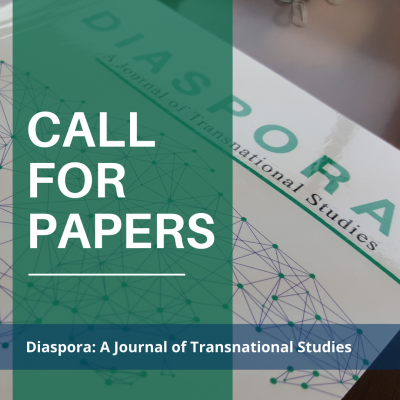Published twice a year by the University of Toronto Press, Diaspora was founded in 1991 and has significantly contributed to the evolution of diaspora studies and transnationalism, engaging in discourses ranging from Postcolonial Studies to World Literature, and themes from environmental migrants to global networks. The journal endeavours to rethink mobility and mobilization and thus reorient traditional accounts of home, homeland, host state and diaspora. An interdisciplinary journal, Diaspora welcomes the contributions of scholars from across the social sciences and humanities who share these intellectual concerns.
Diaspora welcomes articles on all aspects of the topics with which it is concerned: diaspora and related forms of dispersion, transnationalism, nationalism, ethnicity, globalization, and postcoloniality. The journal welcomes studies of specific diaspora communities, whether past, existent, or emerging, and on all aspects of the sub-national, transnational, and globalizing phenomena that now challenge the nation-state and supplement the old international order, including but not limited to migrating peoples, world literature, mobile cultures and media, nomadic ideas, and works of art that traverse frontiers.
We welcome contributions from the disciplines of anthropology, art history, cultural studies, economics, geography, history, linguistics, literary and postcolonial studies, media studies, political science, psychology, religious studies, sociology, and interdisciplinary or area studies fields, broadly defined.
Submissions are accepted on an ongoing basis.
- Please send submissions in a Word document (not PDF) to diaspora@utpress.utoronto.ca.
- Because manuscripts will be refereed anonymously, the author’s name and all contact information should be on a separate title page.
- Submissions should conform to the Style Guide available on our website: https://utpjournals.press/journals/diaspora/submissions
Diaspora is sponsored by the Zoryan Institute of Canada and of Cambridge, MA.





